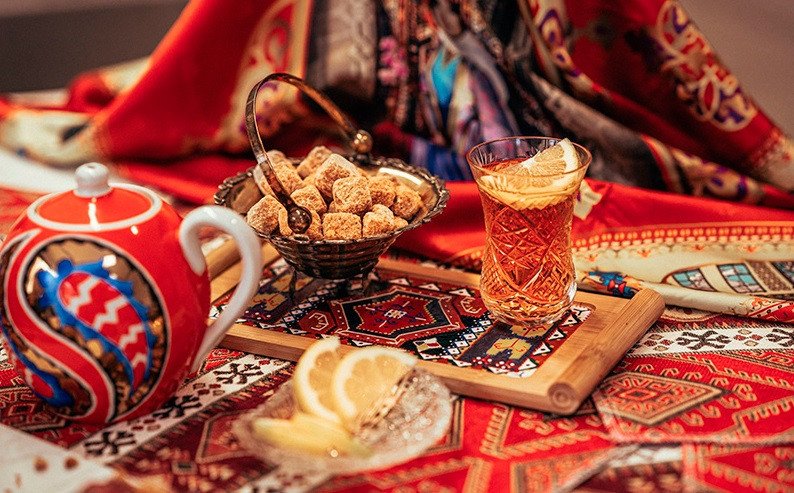Turkish culture, a vibrant tapestry woven from a rich history and diverse influences, offers an unparalleled experience for those eager to explore its depths. From its ancient traditions to contemporary practices, immersing oneself in Turkish culture is an adventure filled with colour, flavour, and history. This guide will walk you through various aspects of Turkish culture, ensuring a comprehensive and enriching experience.
Discover Turkish Cuisine
One of the most immediate ways to connect with Turkish culture is through its cuisine. Turkish food is renowned for its diverse flavours and regional specialities, making it a cornerstone of the culture.
Traditional Dishes
Start with classics such as kebabs, mezes, and baklava. Each dish tells a story of Turkey’s history and regional diversity. For example, kebabs vary from region to region, with each offering a unique twist on this beloved dish. Additionally, sampling a variety of mezes, which are small, flavorful dishes, will provide insight into the communal and celebratory nature of Turkish dining.
Street Food and Markets
Don’t miss out on the bustling street food scene. Street vendors across Turkey offer a range of delights, including simit (Turkish bagels), döner kebabs, and roasted chestnuts. Visiting local markets, like Istanbul’s Grand Bazaar or the Kemeralti Market in İzmir, will further immerse you in Turkish culture, allowing you to experience the hustle and bustle of daily life while tasting local specialities.

Explore Turkish Art and Architecture
Another essential aspect of Turkish culture is its art and architecture. Turkey boasts an array of architectural marvels and artistic expressions that span centuries.
Historical Landmarks
Begin with iconic historical landmarks such as the Hagia Sophia in Istanbul and the ancient city of Ephesus. The Hagia Sophia, initially built as a cathedral, later converted into a mosque, and now a museum reflects the rich and complex history of the region. Meanwhile, Ephesus, with its well-preserved ruins, offers a glimpse into ancient Roman life.
Contemporary Art
In addition to historical sites, Turkish contemporary art is gaining recognition on the global stage. Visit galleries and museums like Istanbul Modern or the Pera Museum to see works by modern Turkish artists. These spaces offer a window into the current cultural and artistic trends within Turkey.
Embrace Turkish Traditions and Festivals
Experiencing Turkish culture also involves participating in its lively traditions and festivals. These events highlight the cultural richness and communal spirit that define Turkish life.
Festivals
Join local festivals such as the Istanbul Film Festival or the Whirling Dervishes Festival in Konya. These events showcase Turkey’s vibrant cultural scene, offering a unique chance to experience traditional and contemporary expressions of Turkish culture. For instance, the Whirling Dervishes, part of the Sufi tradition, provide a spiritual and artistic performance that reflects the country’s deep historical roots.
Daily Traditions
Engage with everyday traditions by visiting a Turkish bath (Hamam) or attending a traditional tea ceremony. The Hamam experience, a ritualistic form of bathing, offers insight into traditional Turkish social practices, while the tea ceremony underscores the importance of tea in Turkish hospitality.
Learn the Language
Finally, learning a few key phrases in Turkish can significantly enhance your cultural experience. Language is a vital component of Turkish culture, and even a basic understanding can open doors to deeper interactions and a more immersive experience.
Basic Phrases
Start with simple greetings and expressions. Phrases such as “Merhaba” (Hello) and “Teşekkür ederim” (Thank you) are useful for daily interactions. By making an effort to speak Turkish, you demonstrate respect and curiosity about the culture, which can lead to richer and more meaningful connections with locals.
Conclusion
To truly experience the richness of Turkish culture, delve into its cuisine, art, traditions, and language. By embracing these elements, you not only gain a deeper understanding of Turkey but also create lasting memories that reflect the country’s unique heritage. Whether you’re wandering through historical sites, enjoying a meal, or participating in a local festival, Turkish culture offers a wealth of experiences that are both enriching and unforgettable.

